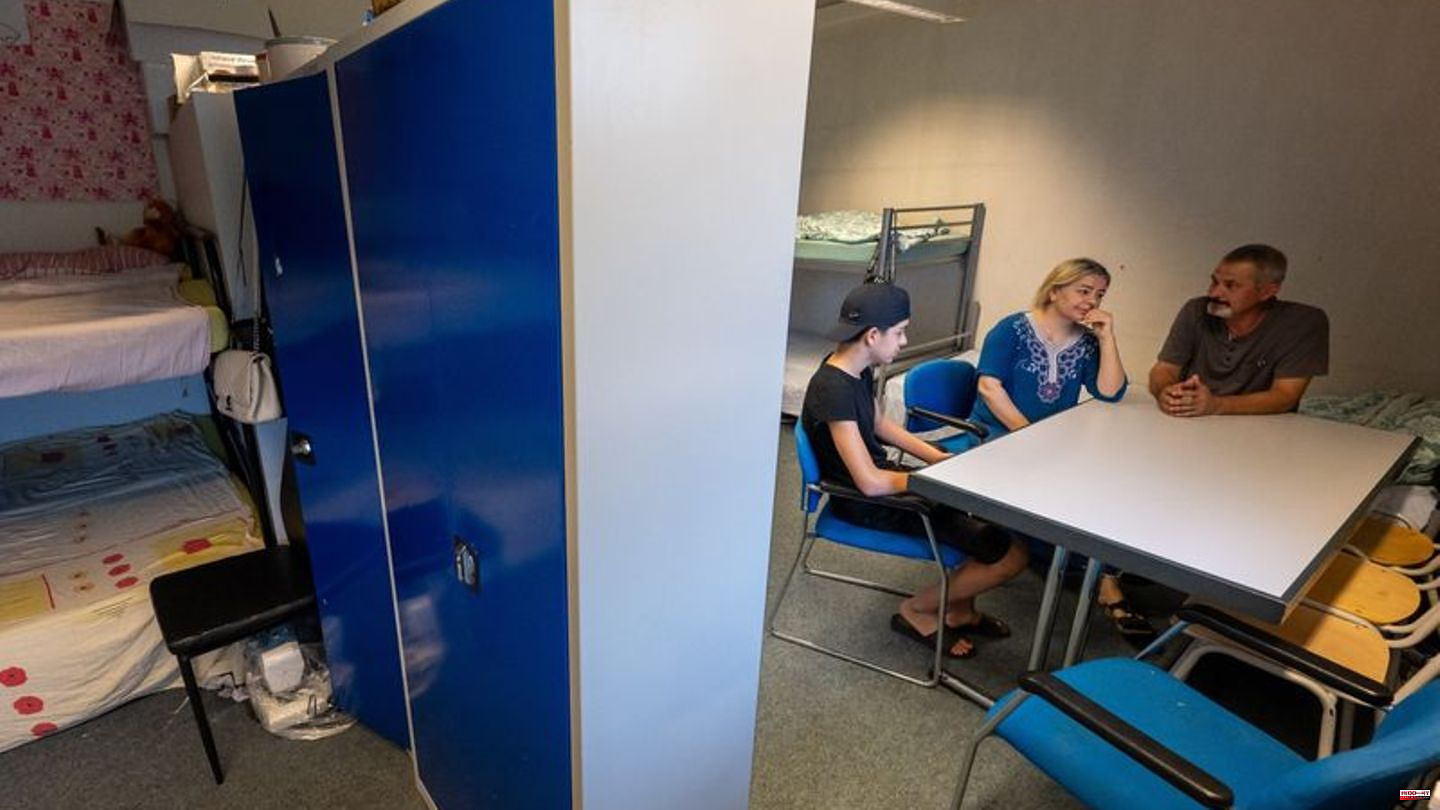The Bavarian districts are sounding the alarm in view of the high number of refugees and are urgently calling on the federal government to take countermeasures.
In a comprehensive catalog of demands, they demand, among other things, a "significant limitation and control" of illegal migration, the consistent expulsion of foreigners who are not entitled to stay and greater support for municipalities in accommodation, care and integration. The “persistent emergency mode” must be ended.
And: Asylum seekers with little prospect of staying should be accommodated in central federal and state reception centers and no longer be distributed prematurely into the area. “These accommodation capacities must be increased.” The anchor centers in Bavaria are either overcrowded or almost completely at capacity.
“We are in a situation where we can hardly guarantee reasonable accommodation anymore,” said the President of the Bavarian District Council, Thomas Karmasin, on Friday when visiting several refugee accommodations with the German Press Agency.
Improvisation is the order of the day
It's difficult to say when "nothing will work at all" - "because we've already reached the status of tents. Of course, you can still put up tents if necessary." In many places, however, the districts have had to improvise for a long time. "There are colleagues who accommodate people on ships on the Danube. I myself have already had underground car parks checked for their structural suitability and so on. Of course that is still possible, but these are no longer serious solutions. These are bizarre conditions, which can actually no longer be described as humane."
Apart from the shortage of accommodation, Karmasin particularly warned that the integration of the many people is no longer possible. Many have practically no prospects. "They won't be able to find a place to live in the foreseeable future. They will hardly be able to integrate into the labor market. There is a lack of resources everywhere, including for the many children, of childcare places, of school places. There is a lack of medical care . So overall there is simply a lack of everything that makes life possible in our society afterwards."
The Fürstenfeldbruck district administrator warned: "And that is much worse than providing a place to sleep at short notice."
Looking ahead to the coming months, he has “significant concerns,” said Karmasin. Namely, that at some point a “tipping point” will be passed where the many people simply can no longer be integrated. "And then we have conditions here, including within society, that make it very, very difficult."
“The Chancellery is simply turning a blind eye,” criticized Karmasin. They tried several times to contact the Chancellor - and waited in vain for a response. The federal government must finally tackle the problem seriously.












